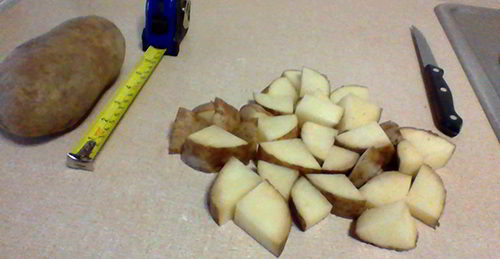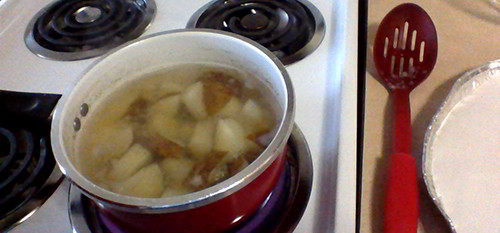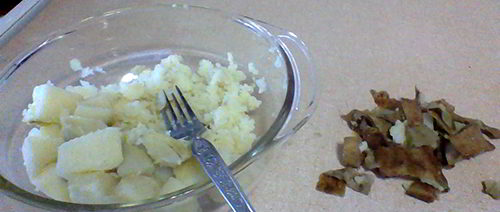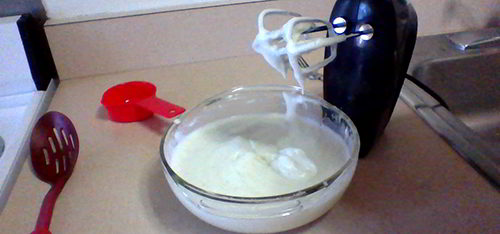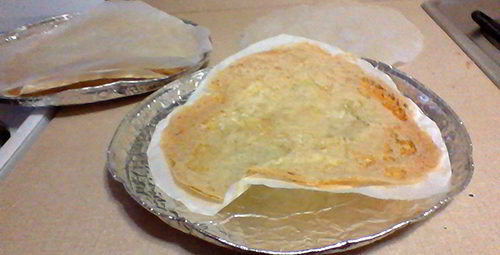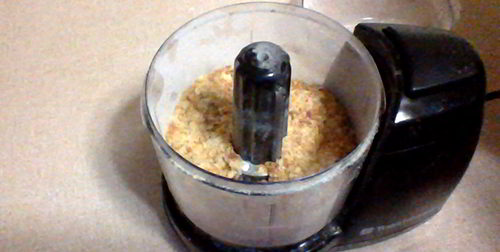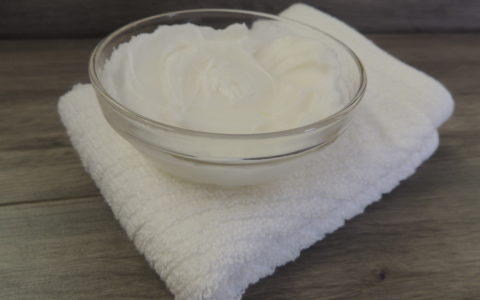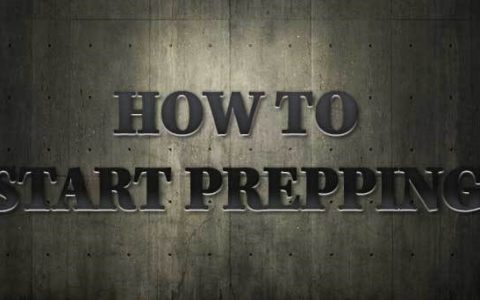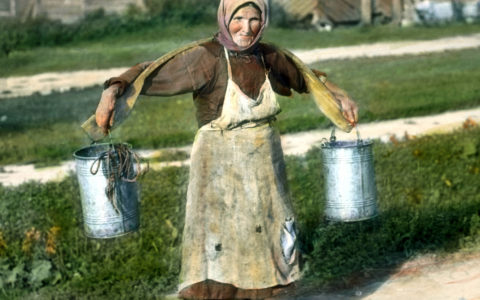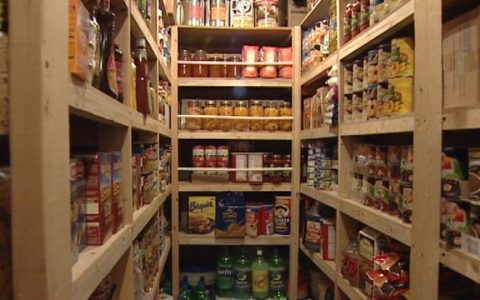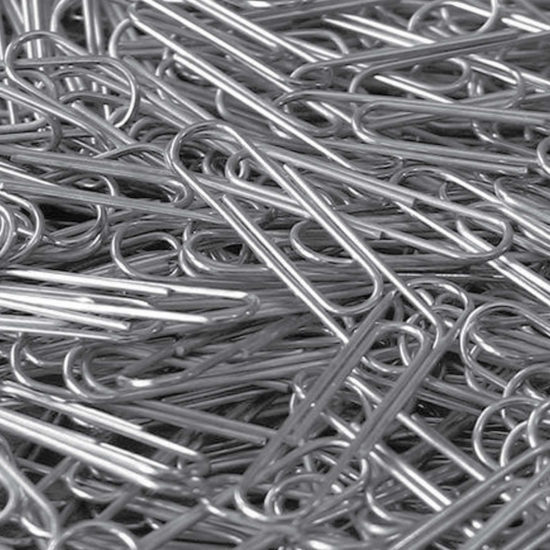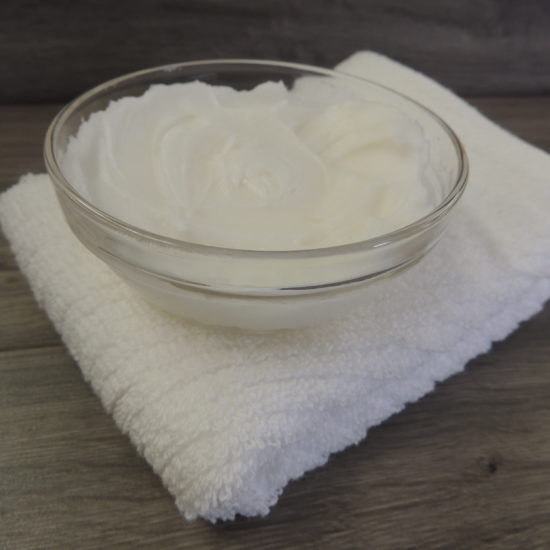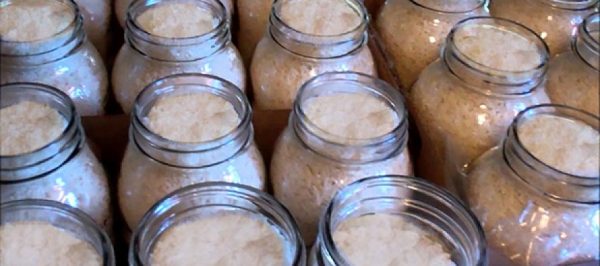
Dehydrated potato flakes are a nutritionally healthy, highly portable source. They’re pretty easy to cook, don’t weigh too much and keep without refrigeration for a long time. Even, when you make them from scratch you know what’s in them, so they taste better.
Preparing the Potatoes
Peel the potato and cut it up into medium-sized pieces.
You can wait until after you boil the potatoes to peel them if you prefer. Any of the bits will come off the skin as they simmer. Let the pieces of potato cool off a bit, slip a butter knife or fork under the edge of the peel and pull it away. It will come off with ease.
Put the bits of potato into a saucepan and add enough water to cover them generously. It takes about 4 cups of water in a medium-size pot to cover 1 big baking potato.
Add a tablespoon of salt, if you like. It’s not really important, but the flavor is much preferred by many people. I use 1 to 2 sea salt grinds.
Bring water to a rolling, full boil. Switch the heat to roughly medium so that the water remains at a steady boil and cook the potatoes for 15 to 20 minutes. These are achieved by simply sliding a fork through them.
Take the peeled, cooked potato pieces out of the pan with a spoon and put them into a large bowl. Do not throw out the potato water. Mash the potatoes with a fork or hand potato masher.
Attach 1/2 cup of potato water to the potatoes and stir in. A mixer to this part works best. Mix them in until they are smooth. Add 1/4 more cup of potato water and add some more. They should be the consistency of runny pudding. Add more water, if necessary, until they are the right consistency.
While adding water to the potatoes doesn’t make much sense, it does need to be done. The potatoes must be thin and a little runny, or they will not dehydrate and break down properly.
Dehydrating in the Oven
Line a baking pan or pizza pan with parchment paper. Cut the parchment paper down to size so it fits neatly on the bottom of the pan. Parchment paper that extends beyond the edges of the pan will scorch.
Spread the mashed potatoes out evenly in a thin layer (no thicker than 1/4 inch) on the parchment paper. Place another piece of parchment paper on top and lightly smooth it over the potatoes.
Dehydrate the potatoes for 6 to 8 hours in a 170-degree Fahrenheit or 75-degree Celsius oven. Leave the oven door open slightly to allow the moisture to escape.
Dehydrating is a Dehydrator
If you are using a dehydrator, use the fruit leather tray or the pans/sheets designed for use with your dehydrator.
Set your dehydrator at 130 to 145 degrees Fahrenheit or 55 to 65 degrees Celsius and leave the potatoes in for 6 to 36 hours, depending on how quickly your dehydrator works. Check them after a few hours and turn over the chunks that are getting dry.
Related: 7 Unusual Ways To Use Your Vacuum Sealer
Making Potato Flakes
The potatoes will be dry, crunchy, and white-gold to golden-brown when they are done.
Put the dehydrated potato pieces into a food processor or blender to crunch them up into flakes. Grind them up as much as you can. The finer the grind the smoother the mashed potatoes.
Using Homemade Potato Flakes
The potato flakes are reconstituted with about twice as much water as the flakes. The 2/3 cup water and 1/3 cup flakes, for example, make 1 serving. The amount of water required is going to vary so you may want to experiment. To enhance the taste and texture, add a little salt, 1 to 2 teaspoons of butter, and around 1/4 cup of milk to the potatoes. Use the water to place the salt in the pan, bring it to a boil, remove from heat, mix in the flakes, milk, and butter. Coconut oil or olive oil can also be used in place of butter.
Shelf Life
If you keep the potatoes flakes in a regular container they will last between 6 months to a year. The best way to store them would be in Mylar bags, add oxygen absorbers, keep them in a cool, place and the flakes could last for 5 maybe 8 years.


